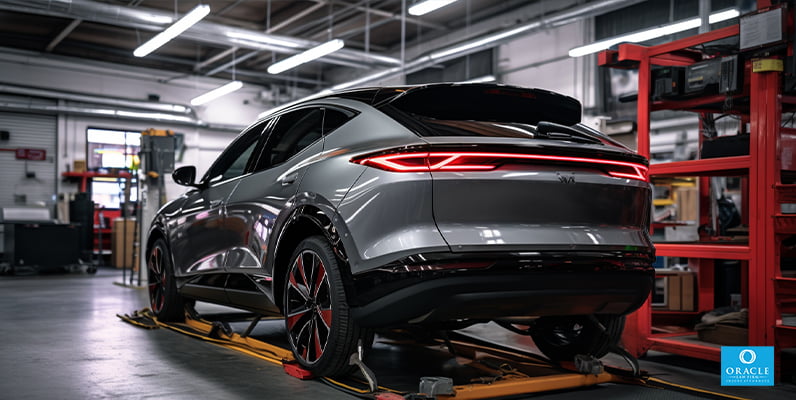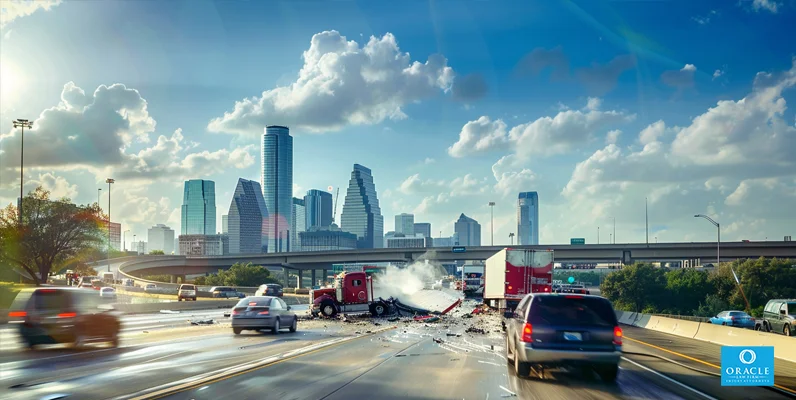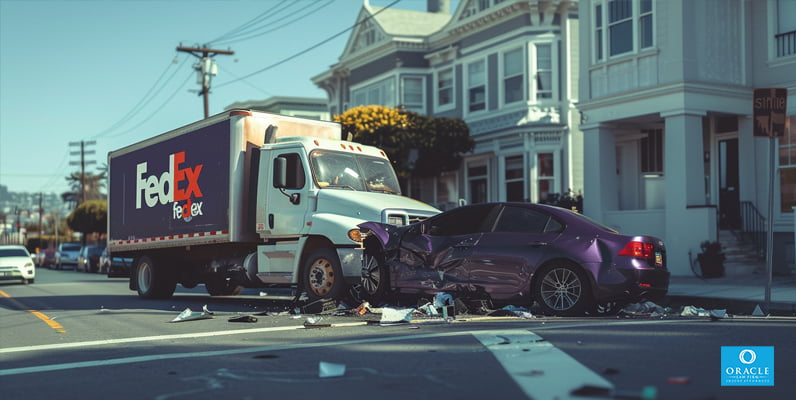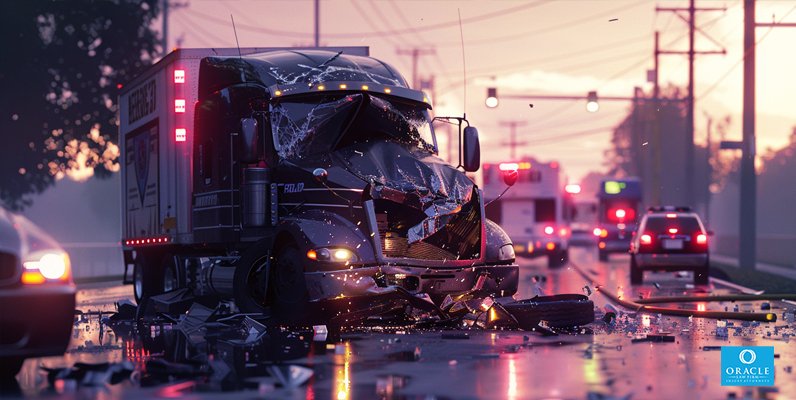California Vehicle Safety Inspection Requirements ensure our roads are safe and our environment remains protected. Understanding the inspection process and requirements can help you avoid costly penalties and keep your vehicle in top shape. We will explore the importance of regular vehicle safety inspections, the exemptions and exceptions to California Vehicle Safety Inspection Requirements, and the consequences of failing or skipping an inspection.
Key Takeaways
- California’s Vehicle Safety Inspection Process involves emissions testing and mechanical safety checks to maintain environmental protection and road safety and comply with regulations.
- Exemptions from inspection requirements include electric vehicles, certain model years & weight restrictions.
- Failing or skipping a vehicle inspection can result in costly penalties & hinder registration of the vehicle. Financial aid is available for repairs.
California’s Vehicle Safety Inspection Process
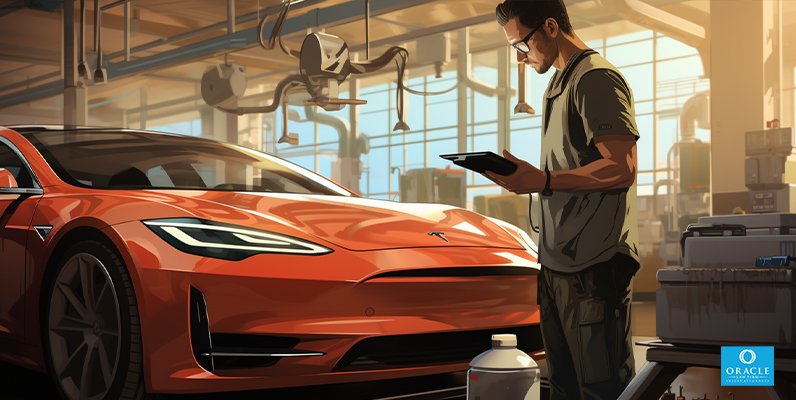
California’s vehicle safety inspection process emphasizes emissions testing and mechanical safety checks to safeguard the environment and road safety. Although not all vehicles are subject to inspection, most drivers must comply with California car inspection laws. Should a vehicle fail the emissions inspection, the owner must undertake the necessary repairs, with potential financial assistance available for those who qualify.
The inspection process involves various steps, including selecting the site, interviewing the driver, collecting documents, verifying equipment, and examining the vehicle’s headlights, taillights, hazard lights, turn signals, license plate lights, and brake lights. Vehicle safety inspections, which confirm vehicles’ proper working order, can help prevent accidents and shield drivers from liability and insurance issues.
Emissions Testing
Emissions testing is mandatory for most vehicles in California, aiming to mitigate air pollution. The inspection involves a visual inspection of emission control components and systems, a functional inspection of the vehicle’s check engine light, ignition timing, and exhaust gas analysis using a smog machine. Smog emissions inspection is essential in California, as smog can create hazardous air quality levels in cities, posing a significant issue in major metropolitan areas.
Upon passing the smog emissions inspection, the inspection station will provide a smog certification outlining the vehicle’s results and submit an electronic report to the Department of Motor Vehicles. This process aids in guaranteeing that vehicles on California roads adhere to the state’s stringent emissions standards, thereby contributing to cleaner air and a healthier environment.
Mechanical Safety Checks
In addition to emissions testing, mechanical safety checks are vital for maintaining vehicle safety. California’s annual safety inspections assess any damage or limitations to the car’s mechanical functions and features, including checks for leaks, fluid levels, and the mechanical integrity of the vehicle.
Brake checks are a crucial aspect of California’s vehicle safety inspection, inspecting brake linings and pads, looking for signs of missing or damaged brake components, and verifying that brake pads or shoes have adequate thickness. Tires should also be inspected annually as part of California’s mechanical safety inspections to ensure they are in good condition and safe for use on the road.
Exemptions and Exceptions to California’s Inspection Requirements

Specific vehicles are exempt from California’s inspection requirements, including electric vehicles, vehicles with particular model years, and vehicles with weight restrictions. Many vehicles six years old or newer don’t need the usual inspection requirements. However, owners must pay a $20 smog abatement fee for each year of exemption.
Vehicle exemptions from smog inspection include:
- Electric vehicles
- Gasoline-powered vehicles manufactured before 1975
- Diesel-powered vehicles manufactured before 1997
- Vehicles with certain weight limitations
Understanding these exemptions can help drivers ensure their vehicles comply with California car inspection laws and avoid potential penalties.
Electric Vehicles
Electric vehicles are exempt from emissions testing in California because they do not generate tailpipe emissions. This exemption is part of California’s initiatives to promote and incentivize using clean and environmentally friendly transportation options. Since electric vehicles and motorcycles do not contribute to air pollution, their emissions are not included in the state’s comprehensive emissions report, potentially resulting in a decreased reported emissions level for the state.
Exempting electric vehicles from emissions testing allows California to encourage the adoption of cleaner transportation options and plays a pivotal role in reducing air pollution and safeguarding the environment.
Model Year Exemptions
Vehicles of specific model years, such as gasoline vehicles before 1975 and diesel vehicles before 1997, are exempt from inspection requirements, and therefore, obtaining vehicle passes is not necessary for them. The rationale for the model year exemptions is to balance the need for emissions control with the practicality of inspecting newer vehicles, which are typically more fuel-efficient and have lower emissions.
Exempting newer vehicles from inspections allows California to streamline the inspection process and lighten the burden on vehicle owners. Drivers should remain aware of these exemptions to guarantee their vehicles comply with California car inspection laws.
Gross Vehicle Weight Restrictions
Vehicles with certain weight restrictions may also be exempt from inspection requirements. The Gross Vehicle Weight Restrictions exemption for vehicle safety inspections in California applies to nonresident commercial vehicles with an unladen weight of 6,000 pounds or less, provided that the nonresident title or registration reflects the empty, unladen shipping weight.
Understanding the Gross Vehicle Weight restrictions and exemptions can help drivers ensure their vehicles comply with California car inspection laws. Vehicle owners should always consult the specific regulations in their state to determine whether their vehicle is subject to inspection requirements based on weight restrictions.
Consequences of Failing or Skipping a Vehicle Inspection

Failing or skipping a vehicle inspection can result in penalties, including fines and an inability to register or operate the vehicle. The average penalty for failing a vehicle inspection in California can range from $30 to $70, depending on the vehicle size. In addition, failing an emissions test in California will hinder the renewal of one’s vehicle registration, necessitating repairs or servicing before registration can be completed.
Vehicle owners must understand the repercussions of failing or skipping a vehicle inspection to sidestep costly penalties and uphold road safety. Ensuring that your vehicle undergoes regular inspections not only keeps you in compliance with California car inspection laws but also helps prevent potential accidents and liability issues.
Penalties for Failing an Inspection
Penalties for failing an inspection include the responsibility to finance repairs and potential limitations on registration. The California DMV enforces penalties for failing vehicle inspections by imposing fines and fees, with the specific penalties varying depending on the type of inspection and the severity of the failure.
Additional fees may be imposed upon failing a vehicle inspection in California, including a portion of the vehicle license fee, a registration late fee, and a California Highway Patrol late fee. Vehicle owners should keep these potential penalties in mind and take appropriate measures to guarantee their vehicles pass the required inspections for a smooth registration renewal process.
Penalties for Not Completing an Inspection
Penalties for not completing a vehicle inspection can include fines, registration restrictions, and liability in the event of an accident. While a failed or skipped vehicle inspection does not directly impact insurance premiums in California, some insurance companies may require an inspection when purchasing higher-level coverage or after a traffic accident when filing a claim.
Vehicle owners must consult their specific insurance provider regarding their policies concerning vehicle inspections and how they may influence their rates. Neglecting to complete a vehicle inspection can result in penalties and complications with insurance claims should an accident occur.
Financial Assistance for Emissions-Related Repairs

California offers financial assistance for emissions-related repairs through statewide assistance programs, with eligibility criteria in place. Programs such as the Consumer Assistance Program (CAP) provide eligible vehicle owners with up to $1,200 for emissions-related repairs at a STAR test-and-repair station.
Understanding these financial assistance programs can help vehicle owners reduce the cost of necessary repairs and ensure their vehicles meet California’s emissions standards. Utilizing these programs can enable drivers to maintain their vehicles’ performance while reducing the financial impact of emissions-related repairs.
Statewide Assistance Programs
Statewide assistance programs, such as the Consumer Assistance Program (CAP), can provide financial aid for costly emissions repairs, up to $500. CAP offers eligible consumers up to $1,200 for emissions-related repairs at STAR-certified locations.
In addition to CAP, vehicle retirement programs may offer financial aid for purchasing a newer vehicle, helping vehicle owners transition to a more environmentally friendly and fuel-efficient option. These programs, by providing financial assistance, assist vehicle owners in complying with California car inspection laws and keeping their vehicles in good working condition.
Eligibility Criteria
Eligibility criteria for financial assistance include income level and vehicle registration status. Owners of vehicles from model years 1976 through 1995 may be entitled to up to $900 in repairs, while eligible consumers may receive up to $1,200 in emissions-related repairs at a STAR test-and-repair station if their vehicle fails the biennial Smog Check.
To apply for statewide assistance programs in California, one can visit the official websites of the programs, such as CalWORKs, Medi-Cal, or CalFresh, or contact their local social service department for more information and assistance with the application process. These programs provide valuable financial support to help vehicle owners maintain and comply with California car inspection laws.
The Role of Vehicle Safety Inspections in Car Accidents

Regular vehicle safety inspections are crucial in preventing car accidents and ensuring proper insurance coverage. Research has demonstrated that regular vehicle safety inspections correlate with the prevention of car accidents, as states with mandatory vehicle safety inspection programs have experienced fewer roadway fatalities per 100,000 registered passenger vehicles.
However, it is important to note that while safety inspections contribute to accident prevention, they are not a guarantee that all unsafe vehicles will be kept off the road. Inspections, which confirm that vehicles are in proper working order and meet safety requirements, contribute to maintaining the overall safety and reliability of vehicles on the road.
Preventing Accidents Through Regular Inspections

Inspections help identify and address potential safety issues, reducing the risk of accidents. Common car defects identified during safety inspections, such as defective brakes, worn tires, or malfunctioning lights, can increase the likelihood of accidents if not rectified.
Identifying and addressing such issues through inspections contributes to maintaining the overall safety and reliability of vehicles on the road. Ensuring that vehicles undergo regular inspections not only keeps drivers in compliance with California car inspection laws but also helps prevent potential accidents and liability issues.
Liability and Insurance Considerations
Failing to maintain an adequately inspected vehicle can result in liability and insurance complications in the event of an accident. Insurance companies in California may impose penalties for operating an uninspected vehicle, such as fines, ticketing, and potential increases in insurance rates.
In addition, a failed or skipped vehicle inspection may impact the validity of an insurance claim if the vehicle does not meet the inspection requirements stipulated in the insurance policy. Vehicle owners must comprehend the implications of neglecting the maintenance of a properly inspected vehicle and act accordingly to guarantee their vehicles pass the required inspections.
Summary
California vehicle safety inspections play a critical role in ensuring the safety and environmental protection of our roads. Understanding the inspection process, exemptions, and consequences of failing or skipping an inspection can help drivers avoid costly penalties and maintain their vehicles in optimal condition. By taking advantage of available financial assistance programs and adhering to California car inspection laws, drivers can contribute to a safer and cleaner driving environment for all.
Frequently Asked Questions
Do I need to get my car inspected before registration in California?
Yes, it would be best to have your car inspected before registration in California as smog inspections are required for all vehicles except those that are 1975-year-old or older.
How much does it cost to get your car inspected in California?
A vehicle inspection in California typically costs between $30 and $70, and it must be done every two years to avoid penalties and fines. Bring your car to a licensed inspection center near you to complete the process.
Does California inspection out of state vehicles?
Yes, California requires vehicles imported from out of state to obtain a smog check before registering the car.
Are periodic safety vehicle inspections are required by all states?
Fifteen states require periodic safety inspections, while 16 require regular emissions inspections. Maryland additionally requires a safety inspection, and Alabama requires a VIN inspection when vehicles are transferred between states.
What are the primary components of California’s vehicle safety inspection process?
California’s vehicle safety inspection process consists of emissions testing and mechanical safety checks, including brakes and tires.
